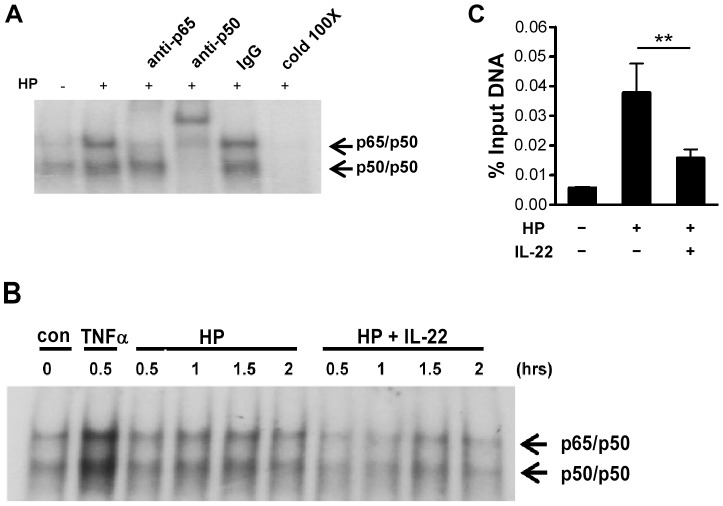Figure 7. IL-22 reduces the binding of NF-κB to the CCL20 promoter in H. pylori-infected AGS cells.
A, EMSA supershift study of CCL20-specific NF-κB activation in H. pylori-infected AGS cells. Nuclear extracts isolated from AGS cells without (−) or with (+) H. pylori infection were incubated with a 32P-labelled probe containing the NF-κB binding sequence in the CCL20 promoter and either excess cold probe (cold 100X), control antibody (IgG), or an antibody to NF-κB p50 or p65 subunit and then subjected to EMSA analysis. B, Effects of IL-22 on the binding of NF-κB to the CCL20 promoter. AGS cells were infected with H. pylori in the absence or presence of IL-22 and nuclear extracts were isolated at the indicated times post-infection and subjected to EMSA analysis. TNF-α treated AGS cells were used as a positive control for NF-κB activation. C, ChIP assay for the binding of NF-κB p65 to the endogenous CCL20 promoter. Chromatin was prepared from AGS cells infected with H. pylori in the absence or presence of IL-22. NF-κB p65 binding to the CCL20 promoter was determined by ChIP assay using an anti-p65 antibody for immunoprecipitation. Immunoprecipitated DNA from each sample was assayed by PCR for the presence of the CCL20 promoter and the result was normalized to the input DNA control. Data represent the mean ± SEM from four independent experiments. **, p<0.02 for H. pylori + IL-22 versus H. pylori only.

